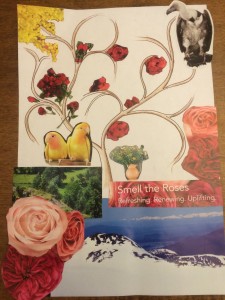Muhammad Iqbal, one of the Indian Subcontinent’s most revered poets, wrote the iconic Urdu poems, “Shikwa” (The Complaint), followed by “Jawab-e-Shikwa” (The Answer). I was drawn to the natural imagery in both poems, especially the repeated motifs of “roses”. The rose is an interesting feature in both poems;
“from the beginnings of time, Your Timeless Self had been
the rose adorned the garden, but none knew of its scent”
“All we call for is justice, O Lord, from whom all favors flow
whence would the fragrance be known, had the gentle breeze not been?”
The complainant refers to the universe as a garden, with the rose as a metaphor for God’s presence. The “scent” referred to above could suggest the presence of God, and the fact that “none knew of its scent” could refer to mankind’s inability to truly accept God’s omniscience.
The existence of the rose, therefore, is incomplete until the “fragrance be known” – once the “gentle breeze” spreads it to society. Therefore, the breeze that scatters the fragrance is society’s acceptance, together, of God’s prevalence. God’s power, and presence is therefore incomplete – until leadership or the ruling class has spread the knowledge of God.
In my artwork, I have also presented an Eagle, because of Iqbal’s reference to the soaring eagle as a metaphor for the ideals of Islam. Iqbal stresses more on Islam as a religion of progression, civilization, advancement and growth. The eagle is therefore a representation of soaring heights, and achieving one’s maximum potential. Iqbal is therefore critiquing the Islamic societies in the Subcontinent from shirking from the responsibilities as Muslims, in advancing their communities.

